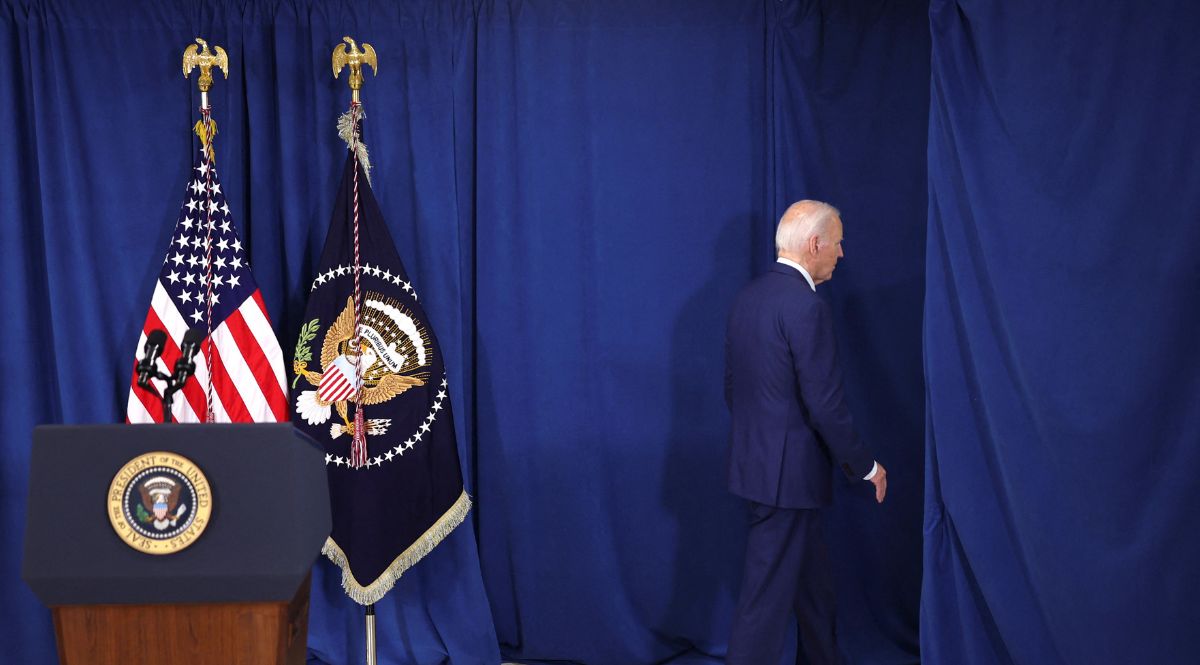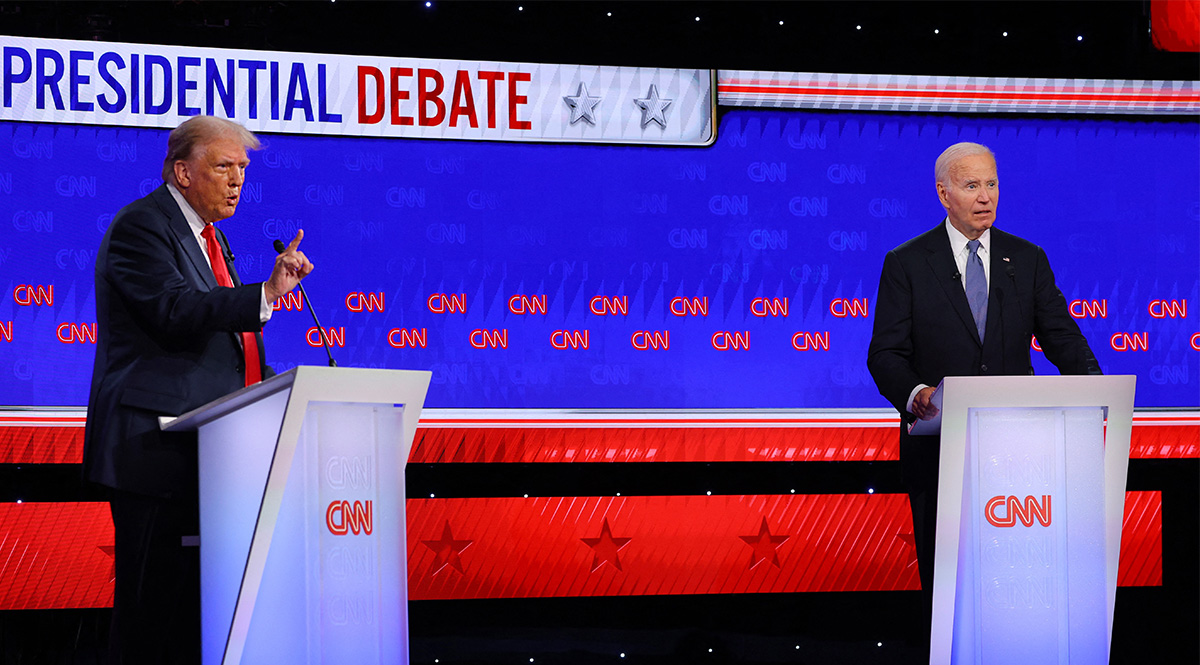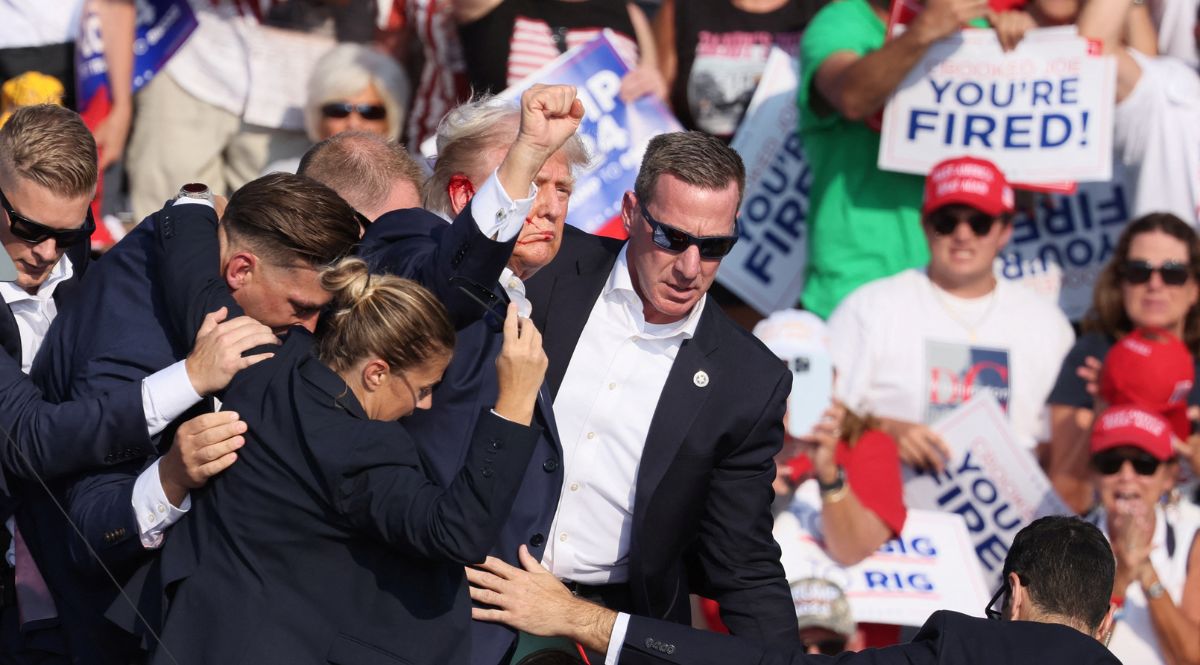Biden Ends Re-election Bid
On 21 July, U.S. President Joe Biden announced that he will not continue to seek re-election and has withdrawn from the Democratic Party’s presidential nomination process. He then endorsed Vice President Kamala Harris as the candidate to represent Democrats in the November elections. Harris must consolidate the party around her candidacy and conduct an effective campaign in the face of growing support for Donald Trump, the Republican Party candidate.
 Tom Brenner / Reuters / Forum
Tom Brenner / Reuters / Forum
What was the justification for Biden’s decision?
In his statement, Biden did not indicate the reasons why he decided to withdraw from the election campaign but he emphasised he was putting the interests of the party and the country first. He also announced that he will address the nation later in the week to explain his motivation. He ended his re-election bid after three weeks of strong pressure from media and various factions in the Democratic Party, including weakening support from donors and in polling, in the wake of his poor performance in the presidential debate. The president’s COVID-19 infection on 17 July forced him to temporarily suspend campaign activities and isolate at home in Delaware. This magnified warnings that Biden’s continued candidacy threatened not only the Democrats’ chances of keeping the White House but also broader efforts to maintain or expand the majority in the Senate and to regain the House of Representatives from the Republicans.
Who will be the Democratic candidate?
Immediately after Biden decision was made public, Vice President Kamala Harris thanked the president, congratulated him on his term in office, and announced her efforts to obtain the party’s presidential nomination. Harris was tipped by media, commentators, and much of the Democratic Party to succeed Biden long before he dropped out of the race. In the primaries, which were held in each of the 50 states and territories from January to June, Biden won as many as 3,896 out of the 3,933 delegates to the convention. He will now release them from their obligation to him, creating the opportunity for other candidates to win them over. Harris announced that she would fight for the nomination and confirmed that she would take part in the process to select a candidate. Many of the politicians who could be seen as potential candidates already have given Harris their support. Some hope to be nominated as her vice president, including the governors of Pennsylvania (Josh Shapiro), Kentucky (Andy Beshear) and North Carolina (Roy Cooper). Arizona senator and former astronaut Mark Kelly may also be a strong candidate. The choice of candidate will be dictated primarily by the desire to reach voters from groups that are not convinced by Harris and her policies.
Why is Harris likely to be the Democratic Party’s candidate?
In addition to the belief that she has a greater chance of defeating Trump in the election that others, as significant reason for Harris to be the candidate is the need to maintain the link to campaign finances. According to the latest data from the Federal Election Commission, Biden’s team had $96 million in July to run his campaign. This does not include money available to the Democratic Party and allied Political Action Committees (PACs). Immediately after Harris announced her intention to run, large Democratic donors began to give money to the party and political committees. Because Biden and Harris previously chaired the joint committee, the funds they have raised can be used for Harris’ campaign activities. If she loses the nomination to another candidate, technically she will have to return the collected money or transfer it to the party authorities through legal means. That is why the choice of Harris by the delegates to the national convention makes the most sense from the point of view of a smooth transition for the campaign.
How might the Democratic Party’s strategy change?
Biden’s withdrawal came at a critical moment in his re-election campaign. A week after the failed assassination attempt on Trump, from which the former president emerged politically strengthened, the voices calling for Biden to quit the race posed a significant hurdle for him. Harris’ team will likely highlight features of her candidacy that contrast with Biden’s apparent weaknesses—her younger age, exuberance, and spontaneity. The campaign will also aim to attribute as many of the administration’s accomplishments as possible to Harris to minimise years of allegations that she had only a limited role in carrying out important political initiatives and that she had been pushed into the background by the president and his inner circle. Trump, in turn, will want to link Harris to what he sees as the administration’s failures such as the migration crisis on the border with Mexico and the influx of dangerous drugs like fentanyl. For Harris to succeed, she will require the consolidation of the Democratic Party around her, and while her position has strengthened since Biden announced his withdrawal from re-election, it is not unshakable. Harris will have to win over the more moderate and centrist factions of the party. Former President Barack Obama, whose opinion remains important both for the party’s activists and for voters themselves, is taking a wait-and-see approach.
How has Biden’s withdrawal affected the Democratic Party?
The pressure on the president from within the party has left it in a state of uncertainty and political confusion regarding its future leadership. The most significant pressure on Biden came from his longtime congressional allies, including Senate Majority Leader Chuck Schumer and former House Speaker Nancy Pelosi. At the same time, progressives, which are party members with more left-wing views, like Senator Bernie Sanders, as well as members of Congress with a racial minority background, sought to save Biden’s candidacy. To improve the Democrats’ electoral chances in the presidential and congressional elections, rapid consolidation around one candidate and intra-party unity will be crucial. Failure in this regard or a lack of strategy by a Democratic Party post-Biden may frustrate the party’s electorate and keep them from voting. The party’s national convention in August will not only be when the candidate will be selected but also when the Democrats must send a clear signal to voters about the unity of the party as it fights for control of the House and Senate.






.png)